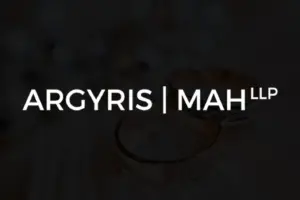I lost my job during the pandemic and I’m getting a divorce. Can I take money from my 401(k)?

It is common for people to borrow against their 401(k) to have money for a down payment on a house and for people to take money out of their 401(k) in times of emergency. Since the pandemic started, it is even more common for individuals to withdraw money from their retirement funds due to the increase in job losses and furloughs. In fact, the CARES Act passed in March of 2020, Congress made it easier to withdraw from retirement accounts. So if you lost your job or lost hours/shifts during the pandemic or if you contracted the virus and was unable to work, it is possible that you will qualify for a withdrawal of up to $100,000 in the 2020 tax year. If you qualify, you won’t pay penalty taxes, but the withdrawals will affect your income tax bracket.[1]
If you are in the midst of a divorce or if you plan on filing for divorce soon, taking money from your 401(k) can also have huge consequences for you in the future.
California is a community property state, which means that all assets and debts acquired during the life of the marriage are divided equally upon divorce. Generally, community property is everything that you and your soon-to-be ex own together, as well as all of the earning that either of you earned during the marriage and everything bought during the marriage. This includes any value of your 401(k) that has accumulated during the life of your marriage using contributions made by you while the two of you were still together. So at divorce, that value of your 401(k) will be split and half of it will be awarded to your soon-to-be ex at divorce.
Once the two of you have separated, meaning that one or both of you believe that the marriage is over and there is no chance of reconciliation, any contributions made to your 401(k), as well as any employer matches, are your separate property. Meaning that if you take out that portion of your 401(k), you likely will not be required to reimburse your soon-to-be ex for the amounts you took out of your 401(k). However, if you withdraw funds from your 401(k) that were accumulated through contributions made during the marriage with the earnings from your job, you will be required to reimburse the community for the amount you prematurely withdrew from your 401(k).
Keep in mind though that once the Petition for Dissolution and Summons is served onto your soon-to-be ex, both of you are automatically ordered to restrain yourselves from “transferring, encumbering, hypothecating, concealing, or in any way disposing of, any property, real or personal, whether community, quasi-community, or separate, without the written consent of the other party or an order of the court.” [2] Although, there are two exceptions to these automatic restraining orders. First, if you had regularly taken money out of your 401(k) during the marriage, continuing to do so would be “in the usual course of business” and would be permitted. Second, taking money out of your 401(k) for “the necessities of life” is permitted. While the financial obligations of the community could in some circumstances constitute “necessities of life,” such as payment of the mortgage of the house you both lived in during marriage and in which one or both of you currently live, community obligations do not ipso facto constitute “necessities of life.”[3]
COVID-19 closures and layoffs has caused many people significant anxiety over how they are going to pay for their housing costs and, in some unfortunate circumstances, how they are going to pay for food. If you are in such a situation and you do not have money for necessities such as food and housing, taking money from your 401(k) for this purpose will likely be permitted. However, to be safe it is in your best interest to get the consent of your soon-to-be ex prior to taking funds out of your 401(k). Doing so will prevent your soon-to-be ex from claiming that you violated the automatic restraining orders.
Additionally, since the withdrawals are counted as income, the money you withdraw from your 401(k) can be used in the formula to determine the amounts of spousal support and/or child support you will be required to pay. In sum, taking out money from your 401(k) is a huge decision that should not be made lightly, as it can also affect your ability to retire in the future,[4] so it is in your best interest to discuss this option with an attorney.